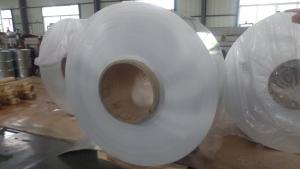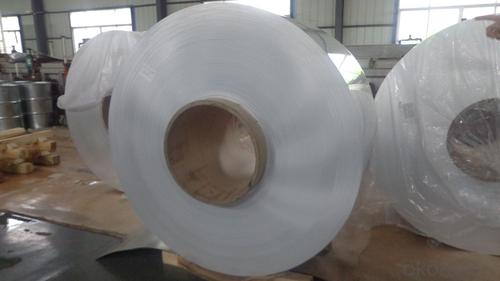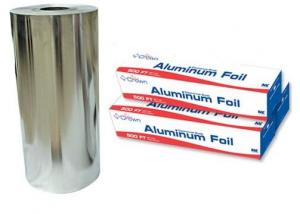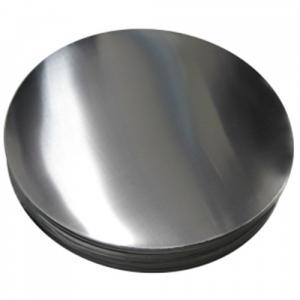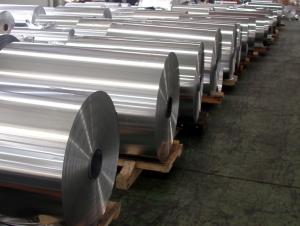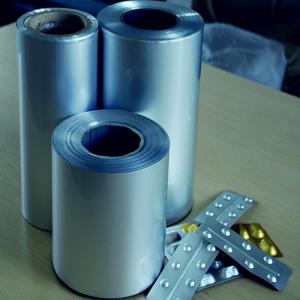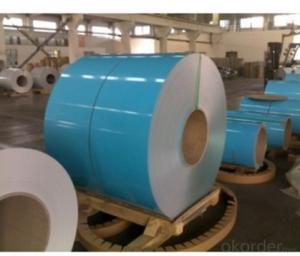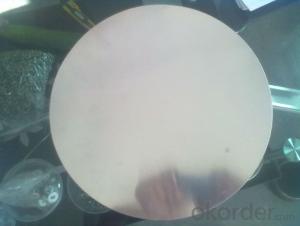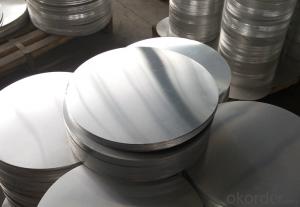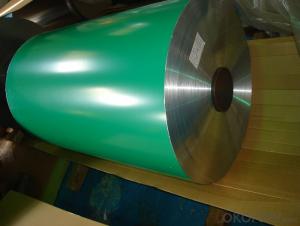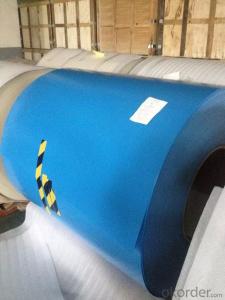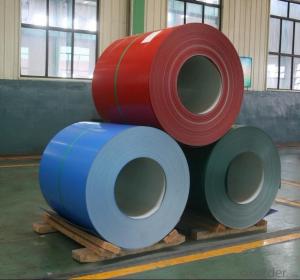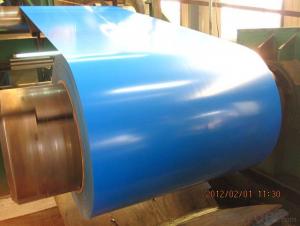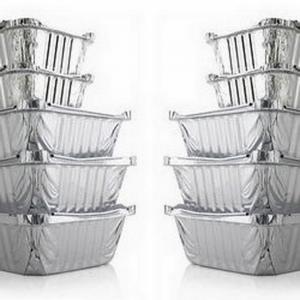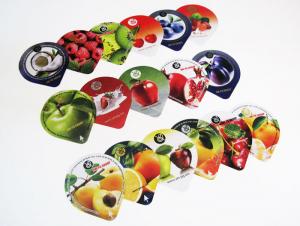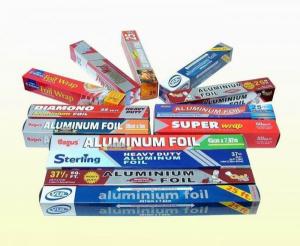Aluminum Color Coated Aluminum Coils for Aluminum Can Stock 5182 H48
- Loading Port:
- Shekou
- Payment Terms:
- TT OR LC
- Min Order Qty:
- 5 m.t.
- Supply Capability:
- 100000 m.t./month
OKorder Service Pledge
OKorder Financial Service
You Might Also Like
Specification
1.Structure of Color Coated Aluminum Coils Used for Aluminum Can Stock 5182 H48
We are very professional in producing color coated aluminium coils used for beverage cans.
Normally we use alloy 5182 H48; 5052 H19; 5052, H36; 5182 H19; 5182 H49 as base coils. Based on ordinary aluminum, we add Mn and Mg, so as to increase tensile strength and elongation. With advanced equipment and technology, we offer customers high quality products for long-term cooperation.
We use large wave shear, transverse shear and longitudinal cut system so as to meet different specifications of customers.
2. Main Features of Color Coated Aluminum Coils Used for Aluminum Can Stock 5182 H48
• Light Weight
• High Flatness
• Good Weathering
• Colorful
• Recycling
• Saving Energy
• Rustproof
3. Color Coated Aluminum Coils Used for Aluminum Can Stock 5182 H48 Images
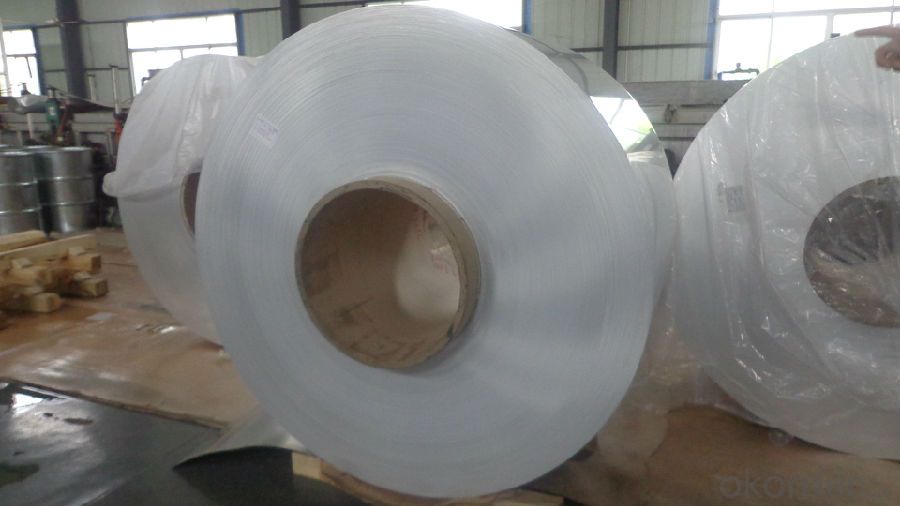
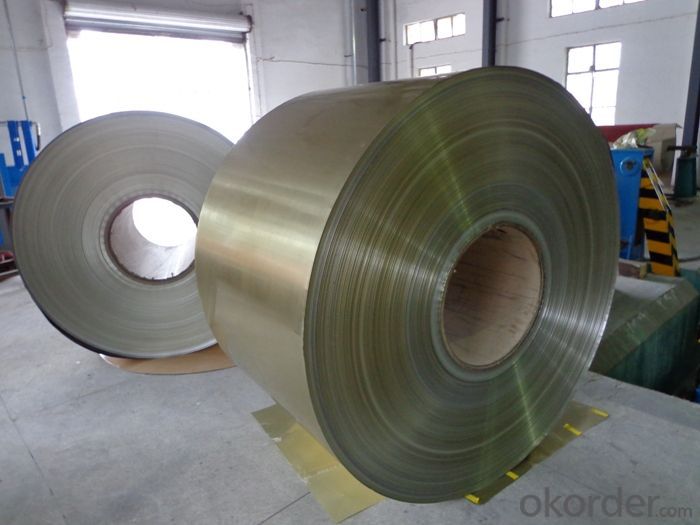
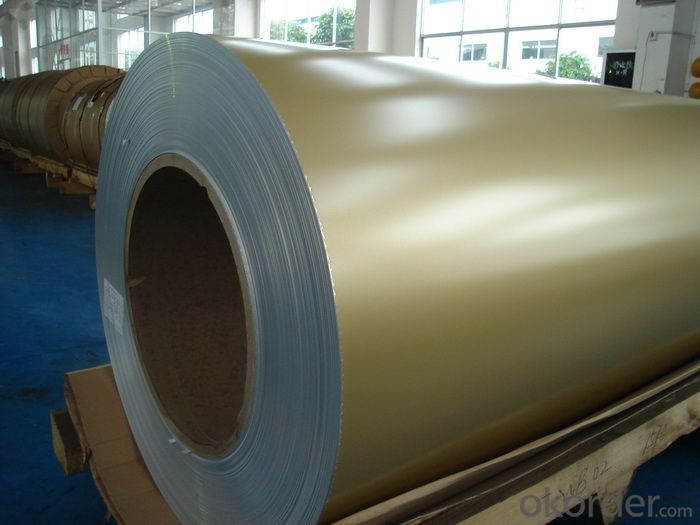
4. Specification of Color Coated Aluminum Coils Used for Aluminum Can Stock 5182 H48
ALLOY | TEMPER | THICKNESS | WIDTH | COIL OR LENGTH |
5052 5182 | H19 H36 H48 H49 | 0.22-0.5mm | 500-1600mm | AS PER YOUR REQUIREMENTS |
5. FAQ
A.What about inspections to guarantee quality?
For each order, we will arrange strict inspection for raw materials, inspection during production and inspection for finished goods.
With requirement of customers, we also can arrange the third party inspection.
B.What about delivery?
We will put order in production schedule after order gets confirmed against copy of TT or L/C. Normally it takes about one month for production. Exact shipment schedule is different based on different sizes and quantity.
C.What is the MOQ?
5 tons for each size.
D. Where have you exported?
We have exported to many countries. Main markets include South East Asia, Middle East, North America, South America, etc.
- Q: Is it possible to utilize recycled aluminum in the production of new products more efficiently than current methods?
- <p>Yes, recycled aluminum can be used more effectively in new products than before. Advances in recycling technology have made it easier to purify and refine aluminum from various sources, including post-consumer waste. This not only conserves natural resources but also reduces energy consumption compared to mining and processing raw bauxite. Additionally, the circular economy approach promotes the design of products that are easier to disassemble and recycle, further enhancing the efficiency of using recycled aluminum in new products.</p>
- Q: This question asks about the environmental impact of aluminum foil, including its production, usage, and disposal.
- <p>Aluminum foil has a significant environmental impact. Its production requires large amounts of energy, contributing to greenhouse gas emissions. The mining of bauxite, the primary source of aluminum, can lead to deforestation and habitat destruction. Additionally, improper disposal of aluminum foil contributes to littering and can end up in landfills, where it takes centuries to decompose. However, aluminum is also highly recyclable, and recycling reduces energy consumption and emissions. Efforts to reduce aluminum foil usage and increase recycling are crucial for mitigating its environmental impact.</p>
- Q: Explain how the production process of recycled aluminum differs from that of new aluminum, focusing on energy consumption and environmental impact.
- <p>The production process for recycled aluminum is significantly less energy-intensive compared to the production of new aluminum. Producing new aluminum from bauxite ore requires high temperatures and substantial energy, often from fossil fuels, to smelt the ore and extract the metal. This process emits greenhouse gases and consumes large amounts of electricity. In contrast, recycling aluminum involves melting down existing aluminum products, which requires only about 5% of the energy needed to produce new aluminum. This process is more environmentally friendly, as it reduces energy consumption, lowers greenhouse gas emissions, and conserves natural resources by decreasing the need for raw materials.</p>
- Q: How can we decrease our reliance on aluminum in everyday life?
- <p>Yes, there are several ways to reduce the use of aluminum in daily life. Opt for glass, ceramic, or stainless steel containers instead of aluminum ones. Choose wooden or bamboo utensils over aluminum ones. When possible, select products with minimal aluminum packaging. Avoid non-stick cookware, as it often contains aluminum. Use a cast iron or glass baking sheet instead of aluminum foil in the oven. Educate yourself on the presence of aluminum in everyday products and make conscious choices to reduce exposure.</p>
- Q: Is it possible to incorporate aluminum in construction materials?
- <p>Yes, aluminum is commonly used in building materials due to its lightweight, high strength, and resistance to corrosion. It is used in window frames, roofing, facades, and structural components. Aluminum's malleability allows it to be shaped into various forms, and it's also recyclable, making it an environmentally friendly choice. However, it's important to note that while aluminum is used in construction, it's often combined with other materials to enhance its properties for specific applications.</p>
- Q: Is it possible to utilize aluminum as a material in battery construction?
- <p>Yes, aluminum can be used in batteries. It is commonly used as a current collector in lithium-ion batteries due to its low density, high conductivity, and corrosion resistance. Aluminum's role is primarily structural, providing support and facilitating the flow of electricity. However, it is not used as an active material in the electrochemical reactions that generate power. Research is ongoing to explore the potential of aluminum as an anode material in next-generation batteries, aiming to improve energy density and reduce costs.</p>
- Q: Jiangsu in addition to the 10000 aluminum factory, there are no other aluminum factory?
- Jiangyin Xinyu company specializing in the production of various types of building Aluminum Alloy industrial profiles, A Well-Known Trademark in China, national inspection, Jiangsu famous brand, my ID address after the two to 52 is my mobile phone number, welcome to contact with us, thank you!
- Q: This question asks for a comparison of the benefits and drawbacks of using aluminum foil in the culinary process.
- <p>Aluminum foil offers several advantages in cooking, such as easy clean-up, even heat distribution, and the ability to create a seal for steaming or baking. It's also versatile, being suitable for both roasting and wrapping food for baking. However, there are disadvantages, including potential health concerns due to the leaching of aluminum into food, especially at high temperatures. Additionally, foil can tear easily, and it's not suitable for non-stick surfaces or use under broilers. Environmentally, it's not biodegradable and contributes to waste, which is a significant disadvantage.</p>
- Q: This question is asking for methods to effectively and safely clean aluminum surfaces without causing damage.
- <p>To clean aluminum surfaces effectively and safely, use a mild soap or detergent mixed with warm water. Avoid abrasive cleaners or tools that can scratch the surface. Gently scrub the surface with a soft cloth or sponge, and rinse thoroughly with clean water. For stubborn stains, consider using a specialized aluminum cleaner or vinegar solution. Always dry the surface immediately after cleaning to prevent water spots. Regular cleaning and maintenance will help prevent the build-up of dirt and grime, keeping your aluminum surfaces looking their best.</p>
- Q: Explain the relationship between aluminum and electrum, if any.
- <p>Aluminum and electrum are two distinct metals with no direct relationship. Aluminum is a lightweight, silvery-white metal that is the most abundant metallic element in the Earth's crust. It is known for its corrosion resistance and is widely used in various industries. Electrum, on the other hand, is a naturally occurring alloy of gold and silver, valued for its unique properties and historical significance. While both metals are used in various applications, they are chemically and physically different and do not have a direct connection.</p>
Send your message to us
Aluminum Color Coated Aluminum Coils for Aluminum Can Stock 5182 H48
- Loading Port:
- Shekou
- Payment Terms:
- TT OR LC
- Min Order Qty:
- 5 m.t.
- Supply Capability:
- 100000 m.t./month
OKorder Service Pledge
OKorder Financial Service
Similar products
Hot products
Hot Searches
Related keywords
